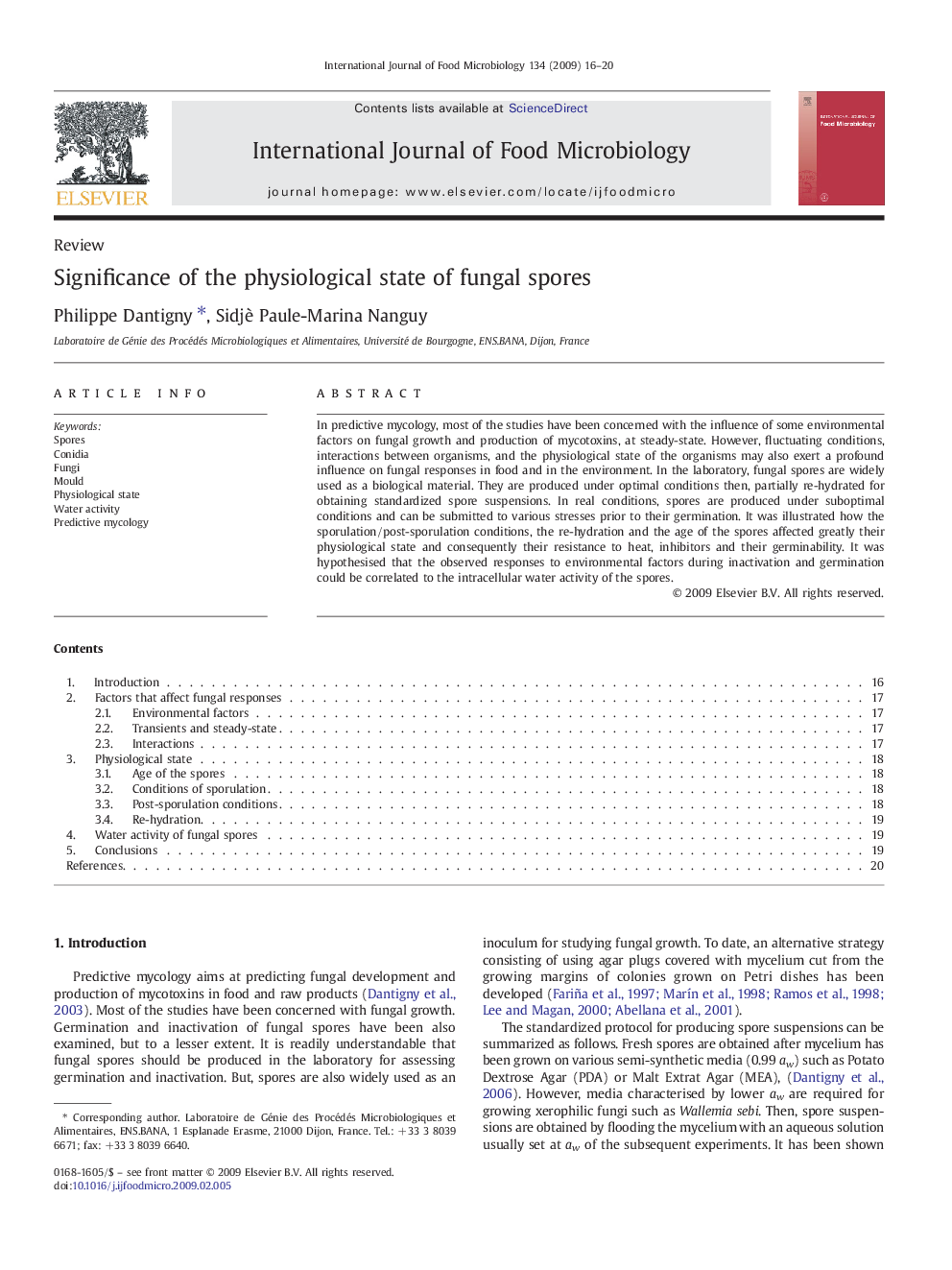| Article ID | Journal | Published Year | Pages | File Type |
|---|---|---|---|---|
| 4368529 | International Journal of Food Microbiology | 2009 | 5 Pages |
In predictive mycology, most of the studies have been concerned with the influence of some environmental factors on fungal growth and production of mycotoxins, at steady-state. However, fluctuating conditions, interactions between organisms, and the physiological state of the organisms may also exert a profound influence on fungal responses in food and in the environment. In the laboratory, fungal spores are widely used as a biological material. They are produced under optimal conditions then, partially re-hydrated for obtaining standardized spore suspensions. In real conditions, spores are produced under suboptimal conditions and can be submitted to various stresses prior to their germination. It was illustrated how the sporulation/post-sporulation conditions, the re-hydration and the age of the spores affected greatly their physiological state and consequently their resistance to heat, inhibitors and their germinability. It was hypothesised that the observed responses to environmental factors during inactivation and germination could be correlated to the intracellular water activity of the spores.
